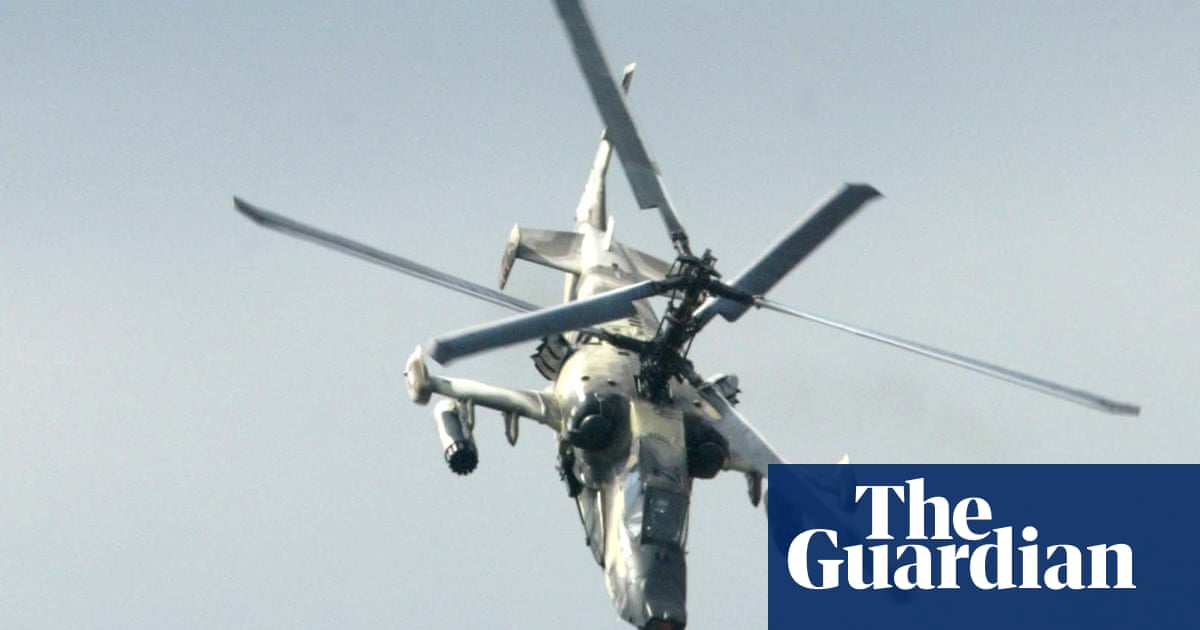
Ukraine war briefing: Sanctions over Russian chemical weapons on battlefield | Ukraine
Published: 2025-07-08 03:26:41 | Views: 12
Britain on Monday placed sanctions on two Russian individuals and one Russian entity for the transfer and use of chemical weapons in Ukraine. It imposed asset freezes and travel bans on Aleksey Viktorovich Rtishchev and Andrei Marchenko, the head and deputy head of Russia’s radiological chemical and biological defence troops. The Joint Stock Company Federal Scientific and Production Centre Scientific Research Institute of Applied Chemistry was sanctioned for supplying the Russian military with RG-Vo riot control grenades whose use in warfare contravenes the international chemical weapons convention.
In brief comments on Monday, Donald Trump suggested the US would resume shipments of primarily defensive weapons to Ukraine. Speaking to reporters at the White House, the US president said: “We’re going to send some more weapons. We have to. They have to be able to defend themselves. They’re getting hit very hard now.” The Pentagon under Pete Hegseth last week halted previously funded and promised arms shipments to Ukraine, with the defence secretary and Trump administration officials giving varying reasons – ranging from a seriously questioned claim by Hegseth of low weapons stocks, to the pause being part of a standard review of defence capabilities.
At least one person was killed and 71 were wounded in Russian drone strikes on Ukraine’s second biggest city, Kharkiv, officials said on Monday. Apartment buildings, a kindergarten and the regional draft office were damaged in two waves of strikes, local and military officials said. During the second wave, six Shahed drones struck within 10 minutes, aimed “at residential streets, at cars, at people”, said the Kharkiv mayor, Ihor Terekhov.
In south-eastern Ukraine’s Zaporizhzhia city at least 20 people were wounded and dozens of residential buildings and a university building damaged in a morning drone strike, governor Ivan Fedorov said on Monday. One person was killed in Odesa, regional officials said.
Russia struck two military recruitment centres in drone attacks on Monday, Ukraine’s military said. The attacks hit densely populated areas, in Kharkiv and Zaporizhzhia, damaging draft offices as well as wounding dozens of civilians, and came a day after a Russian drone struck a recruitment centre in Kremenchuk. Last week, Russian attacks targeted draft offices in Poltava, another regional capital, as well as Kryvyi Rih.
Ukraine’s national security and defence council said Russia was waging an “information campaign” on social media about draft office locations “to destabilise the mobilisation process and sow panic among the population”; however a ground forces spokesperson said recruitment remained on track.
Ukraine’s military said it struck a chemical plant in Russia’s Moscow region that manufactures explosives, ammunition and thermobaric warheads for Shahed attack drones. “A series of explosions were recorded in the area of the city of Krasnozavodsk and the movement of fire trucks in neighbouring settlements,” the military general staff announced on Monday.
Ukraine’s drones also hit workshops at the Ilsky oil refinery in Russia’s Krasnodar region, causing a fire and disrupting production, according to a Ukrainian security service source cited in national media. The BBC said it confirmed the information with its own security source, and Russian local officials confirmed the Krasnodar attack.
The former deputy chief of the Russian army’s general staff was sentenced to 17 years in prison on Monday over a scheme involving theft of money from defence ministry contracts, the Tass news agency of Russia reported. Khalil Arslanov, a colonel general, and others were found guilty of stealing 1.6bn roubles (£14.9m/US$20.3m) from state contracts with Voentelecom, which provides telecommunications services and equipment to the Russian military.
Source link







